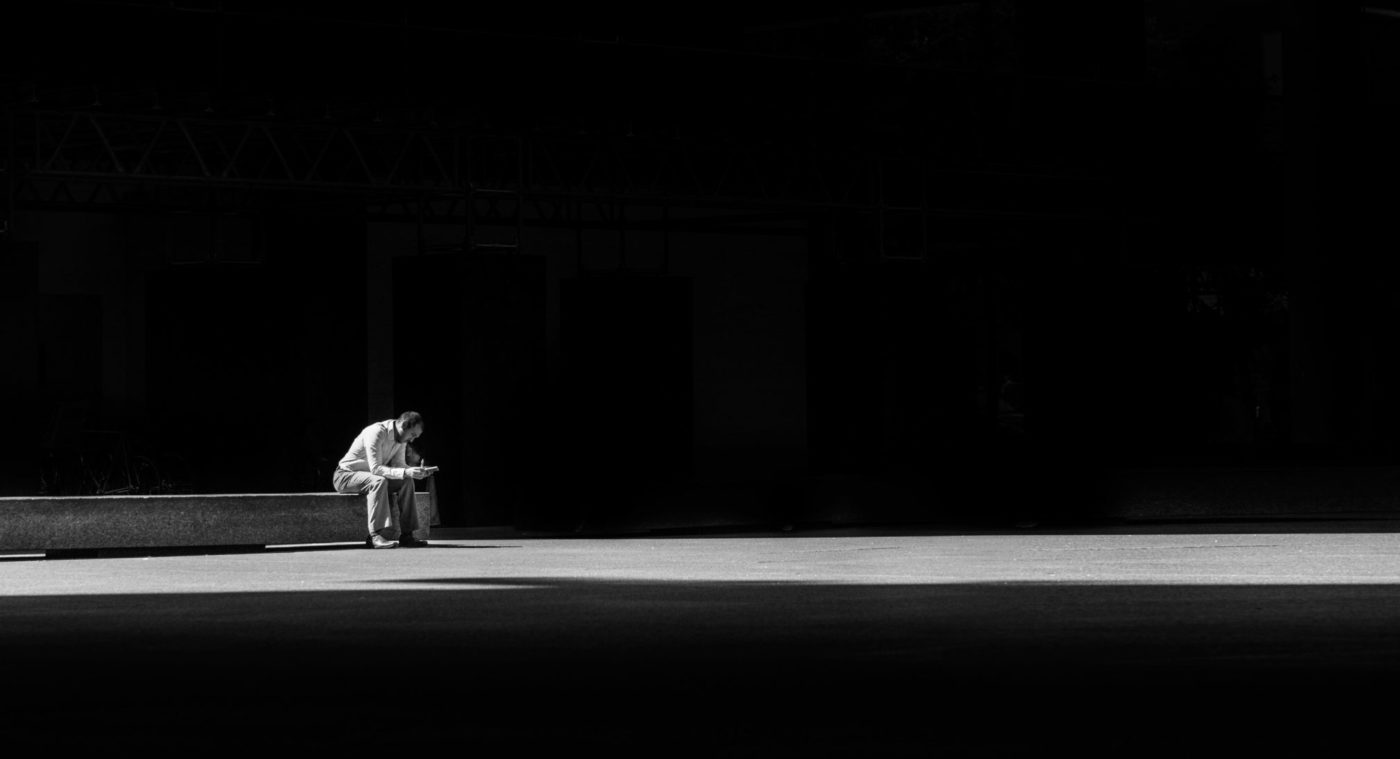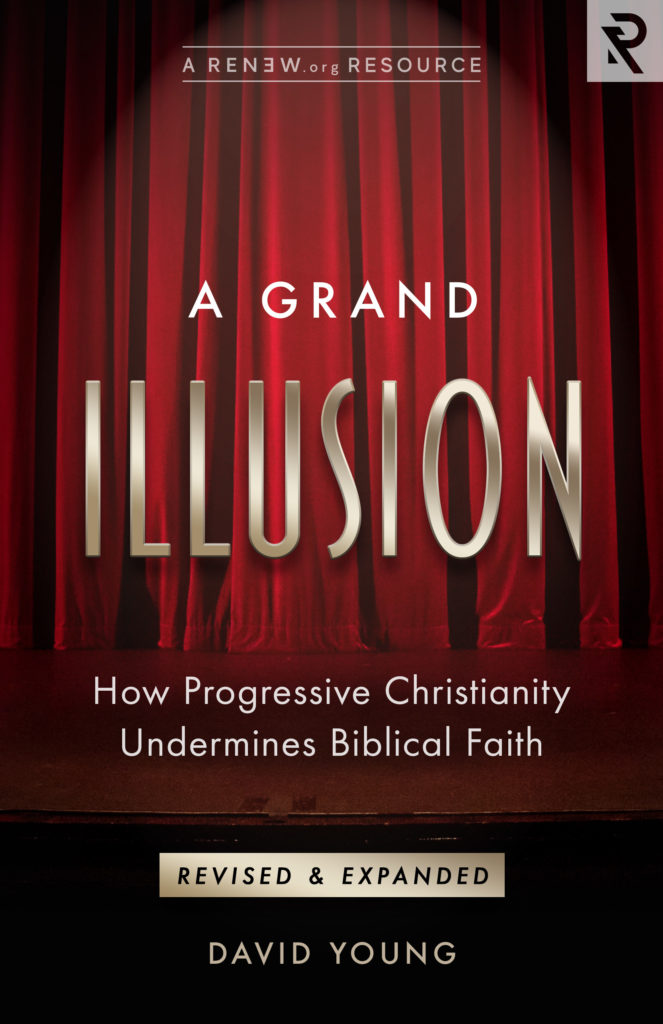
Losing My Faith…in Progressive Christianity (Part 1)
This is Part 1 in a series on leaving progressive Christianity by Dave Stovall, worship leader and former lead singer of Wavorly and band member of Audio Adrenaline. He describes how his journey into progressive Christianity left him dissatisfied and how he found the road to a more sustainable, faithful faith. Here’s Part 2 and Part 3 and Part 4 and Part 5 and Part 6.
I grew up in the South. When I say south, I mean population of 3,000, 97% white, Southern Baptist, praise-God-and-bless-America, evangelical-as-it-gets Alabama. In that bubble I was completely happy. Just about everyone in my family was a Christian, so from an early age I knew I wanted to be one too. At 8 years old, I walked down the aisle and the preacher told me how to say a prayer and ask Jesus into my heart. I got baptized 2 weeks later.
This happened during the glorious 1990s, so there was a little thing in southern church culture called The Sinner’s Prayer. Every preacher preached it, and every good Christian kid walked down an aisle and said it and hopefully meant it the right way or they might just be eternally damned to hell. No pressure on getting this right… My preacher said this was the way to salvation, the revival guest preachers said it, freaking Billy Graham said it, so I just took it as truth.
No one told me it was actually a relatively new thing invented around the 1800s and kicked into high gear (especially in children’s ministries) in the 1970s.
“All you gotta do is ask Jesus into your heart,” they would say. The prayer went something like this: “God, I admit that I’m a sinner. I believe that Jesus died on the cross for me. I confess that Jesus is Lord. Please come into my heart and save me. Amen.”
Very simple. It’s not hard to see why that caught on so well. Much easier than, “All you gotta do is get baptized, confess in front of everyone all the things you’ve ever done wrong, declare Jesus is Lord, and commit to doing or not doing everything God tells you to do or not do through his Holy Spirit which will be dwelling within you from this point forward.”
I mention this now because you’ll see later that this became one of the first cracks in the southern Christian tradition I was handed as a young boy that led me down a series of more cracks and eventually to a deconstruction of my faith.
More on that later. For now, let’s jump back into that glorious decade: the 90s. After becoming a Christian, I grew up to become a JNCO jeans-wearing spiritual leader in the youth group in my teens. Sure, I had questions about aliens, but never about God. Somehow, he was off limits in my mind and questioning him out loud was definitely off limits. These were the easy times in my faith.
But in junior college, a crack would form in that previously firm foundation.
I was heavily involved in the Baptist Student Union on my college campus; it was basically a ministry to keep students on the “straight and narrow.” I was the praise and worship team leader, went on all the street witnessing trips, and eventually became the president of the Baptist Student Union.
But then something happened. There was a spot behind the girls’ dorm, an empty parking lot, where I would go to pray. Bear with me; that sounds creepier than it actually was. I would go out there, look up at the sky, and enjoy the feeling of the presence of God.
One day I went out there and did all the same things I had been doing, but one giant thing was missing: God.
I looked to the sky and felt this horrible self-realizing feeling go through my bones; it was the feeling of being totally alive and yet utterly alone. I was so confused. I tried to pray, but couldn’t feel God’s presence or his love like I had before.
It is important to note that I wasn’t living in any ongoing, unrepentant sin. Sometimes God removes his presence from us, and unrepentant sin is definitely a reason for that, but that wasn’t the case for me. I wasn’t sinless by any means, but I was regularly confessing and repenting whenever I did stumble into sin.
So I eventually just drove back to my dorm room wondering how I was going to hide from my roommate (also a leader at the BSU) the fact that I wasn’t sure if God was real. I waited weeks for the fear to pass, but it didn’t. In fact, the crack only widened and deepened. Had Jesus just been an imaginary friend the whole time? How could I know I was really saved? Did I do it right when I was 8 years old? Did it stick? Now, every sermon I heard, every person I talked to that seemed confident in their faith actually scared me. I felt fake—like everyone thought I was like them, but inside I was different.
Finally I got up the courage to tell someone.
I told my best friend that I was doubting if God existed and wasn’t sure if I was a real Christian. He encouraged me and reminded me of Romans 10:9: “If you declare with your mouth, ‘Jesus is Lord,’ and believe in your heart that God raised him from the dead, you will be saved.” But then warned me that if I ever felt that way again, I should probably get saved…again.
I nodded in agreement, but I could feel a cold sweat. I knew I would feel it again. In fact, I was already feeling it again in that moment. I started declaring “Jesus is Lord” pretty often in my prayers. I said it to the Lord but also to myself, as a means of telling myself “Wake up, soul, and believe this again!” Yet the feeling remained. I started to wonder how saying a phrase or a prayer could actually save me and keep me from the flames of hell.
Remember that sinner’s prayer I told you about? Well, at this point, I’m basically saying that prayer every few hours of every day hoping to God it worked that time.
What a miserable existence. Interestingly though, as I look back, I never read anywhere in the Bible that I was supposed to “ask Jesus into my heart.” Nowhere. You’d think that would’ve been a huge red flag for me, but at the time it wasn’t. I just believed whatever I had been told.
So there I was, the leader of a Christian ministry, front man for a Christian pop punk band, yet losing my faith completely. I reached out to another friend. I was vulnerable with him about my doubts. His response was literally to shame me. He said, “Salvation is the core of our religion; if you’re doubting that…then something is really wrong with you.”
Gee, thanks for the help. Like I needed to be reminded of that.
If I wasn’t sure I should keep these doubts and questions to myself before that Jesus-juke, then I was definitely sure afterward.
The funny thing about the timing of the doubts is that, before all this happened, I had agreed to be a summer missionary after that semester ended. So I wrapped up my sophomore year and headed to the “but it’s a dry heat” state of Arizona, where I began was serving churches out there. The doubts remained, but being out there with no one I really knew was a huge learning experience for me. I started scratching the surface of what God was trying to do with me. He wanted to teach me a very valuable lesson that would not only carry me through difficult times in my faith but also through hard times in marriage and the letdowns of my career.
He wanted to show me how to walk through life without leaning on feelings alone but trusting in his words.
Learning that lesson has carried me through every major step in life. I had to walk through a dark night of the soul and believe that, though I may have felt blindfolded, I was still in the light. That was a hard thing to do. At times it felt like lying to myself. But I knew deep down that God was there and that I wasn’t crazy. I believe all faithful Christians at some point will need to learn how to love and trust God even when we don’t feel like he’s there.
After surviving the dry heat, I returned to college with a refreshed faith that was stronger than before. But one thing was different for sure: I had a new distrust for things I had learned in my Bible-belt upbringing.
The lack of explanation and understanding for the season of doubt I had just been through, mixed with the whole Sinner’s Prayer business, really made me feel like an outsider; like I wasn’t like the “them” I knew in the conservative church circles.
They didn’t understand what it meant to wrestle with God; rather, they seemed to look down on it as wrong and a lack of true faith. They didn’t seem to wonder about things like how a “magical” prayer could save a soul. They didn’t seem interested in looking deeper. Somehow, they seemed simpler than where I was headed mentally. And to be honest, I didn’t really want to be a part of what they were doing anymore. Before, I felt like I was the fake Christian; now it felt more like the opposite. It looked to me like I was the one following Christ, instead of a system of traditions made up by man. So I decided I was going to find out more about the cultural Christian traditions I was handed. I wanted to know where those beliefs came from. I wanted to inspect the roots.
And so began my journey away from the faith and back again.
This is just part 1 of my story of losing my faith in what’s now known as progressive Christianity. The Sinner’s Prayer was the first of the “foundational truths” I was handed through my Southern Baptist upbringing that cracked and fell apart and shook the base floor of my faith. This was the beginning of the deconstruction of the belief system I had depended on for 12 years of being a Christian. I want to walk you through each part of my deconstruction and also show you how my faith was reconstructed. By the time I had embraced a deconstructed, progressive Christianity, I was feeling like I had a better, truer faith than I had before, not realizing that it was custom-tailored fit and had never existed in that form or fashion before me. That’s actually dangerous. But more on that later.
I believe in deconstruction and reconstruction, but I have strong opinions on a right and wrong way to do that. I’d like to open up my story so you can see the pitfalls I walked straight into and maybe help you avoid those. I survived, but it was a long road and parts of it were unnecessary. I have deconstructed, reconstructed—and then had to deconstruct and reconstruct again, but in the right way. If any of this resonates with you, and I’m hoping that it does, stay tuned for Part 2: Revelation, the Rapture, and Good Ol’ Kirk Cameron End Times Theology.









